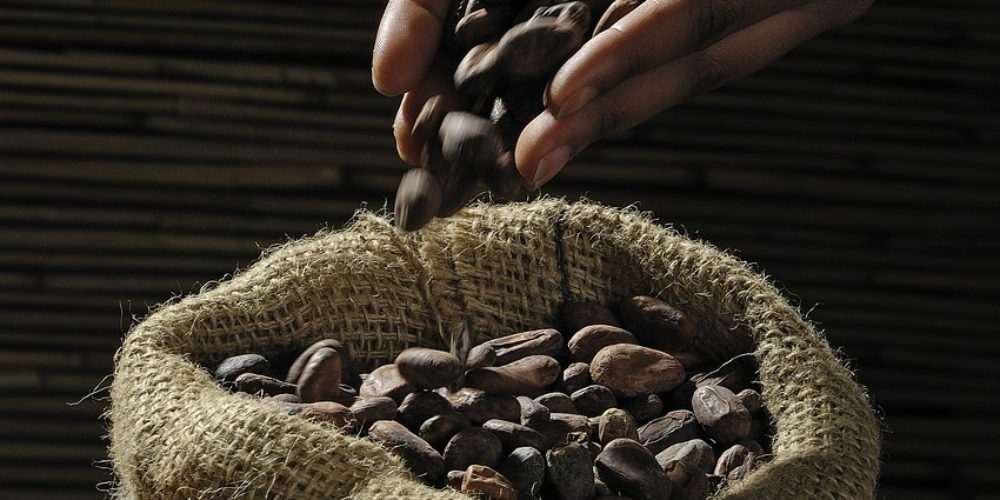Who grows the beans, who eats the chocolate?

Chocolate is one of the world’s most beloved sweet treats. It is consumed pretty much everywhere. You are probably a chocolate lover. So where does your favourite brand of chocolate come from?
A recent white paper from data provider Gro Intelligence gathered the facts: Europe dominates the production, consumption and exportation of chocolate – and has done so for decades. The continent accounts for 70 per cent of global exports; and the world’s top 10 chocolate consuming countries, in per capita terms, are also in Europe. There’s big money in chocolate: it is Europe’s second most valuable processed food export.
So far we are talking about chocolate, the final product. What we often forget is what chocolate really is. The key ingredient is the cocoa bean, which is not grown in Europe. It requires warm and humid climates. So who produces the cocoa bean? Africa. Two-thirds of global cocoa production comes from Africa, mostly from several countries in West Africa. Côte d’Ivoire alone accounts for a third of the world’s cocoa.
It’s a familiar story. We grow the raw material, but that’s all. Other people create, process, sell and eat chocolate. Half the global market in chocolate is supplied by just 17 companies, most of them European.
Before you run out of the house carrying a banner labelled “Exploitation!”, let’s pause to think. What makes these companies so dominant, and what stops us from entering the more lucrative end of the value chain? The answers lie in the following words: innovation, scale, efficiencies, brand, distribution. The Europeans turned cocoa into marketable, branded chocolate, and they pumped up their own middle-class markets using sophisticated branding. To supply this demand, they set up vast sourcing arrangements and processing facilities, at scale.
To date, Africa sits firmly as the bean provider, period. And that is echoed in many other industries.
If you’re African, you could be living in a country that supplies a good deal of the world’s crude oil – but very little of the world’s fuel products. You may be supplying a large chunk of the world’s coffee beans – but very little of the world’s coffee. You may be exporting a good share of the world’s best footballers – but benefiting very little from the world’s football.
I asked on this page more than a decade ago: Is Africa in the right businesses? I wrote then that we participate in some of the world’s most lucrative industries – but from the wrong end. In most, “we remain stuck at the primary production end. We provide the raw material, at a low price (and remain under pressure to make it ever lower). Other people do the sophisticated stuff: they handle the logistics; they build wholesale and retail operations; they manage the final consumer; they nurture brands. And they make all the money.”
Those who provide the raw products tend to live on the edge of poverty; those who control the industry are billion-dollar corporations.
If we are not careful, even the raw materials part of this equation can be taken from us. The Gro report showed that Southeast Asia also has optimal cocoa-growing conditions. Indonesia, perched next to giant chocolate consumers Japan and China, is already the world’s third-largest cocoa producer.
What is to be done? In chocolate and coffee, athletics and soccer, petroleum and flowers – we need a rethink. Our growing corporations and young entrepreneurs need to ask themselves a fundamental question: where in the value chain do we want to play? Where can a fresh-thinking player introduce uniqueness and market power? How do we stop being made to run in an arena with thousands of similar competitors, and how do we become the owners of the game?
For that, a different set of skills is needed. We have to raise our game to move beyond the advantages conferred by nature, and concentrate on the building of sophisticated supply chains and distribution networks; innovative production techniques; immaculate quality control; and eye-catching branding and marketing.
Where does this begin? In the mind. Policymakers, financiers and businessfolk alike need to question why Africa must always play limited roles in the pre-set games of others, and why we cannot build our own consumers, our own final products, and our own reputable brands. Some are already thinking in this way; many more need to join in.
(Sunday Nation, 5 August 2018)

Buy Sunny Bindra's new book
The X in CX
here »
Popular Posts
- How things fall apartFebruary 8, 2026
- Why the third generation might ruin everythingFebruary 15, 2026
- Snakes and Ladders, AKA your lifeJanuary 25, 2026
- Pretty isn’t the productFebruary 1, 2026
- You don’t need people skillsFebruary 22, 2026















